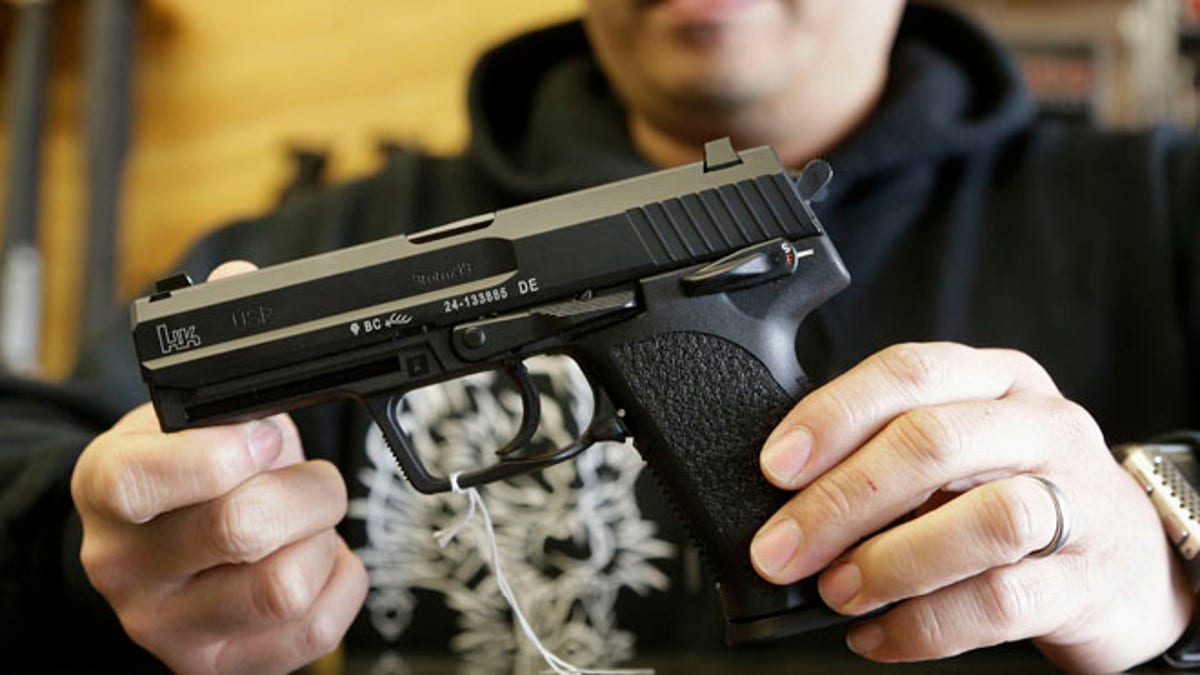
Dec. 19, 2012: A gun store worker holds up an HK USP 9mm handgun at High Bridge Arms Inc. in San Francisco. (AP)
With gangland shootings becoming an every-day occurrence in Chicago, the Board of Commissioners in surrounding Cook County is trying anew to tackle the deadly problem -- with another tax.
But already, some are questioning whether the move is more about making a statement than addressing the violence.
Under the new law, Cook County is charging an additional $25 tax on every handgun sold inside county lines.
Gun shop owner Fred Lutger said this fee targets legal gun buyers, and not the gangsters responsible for many of Chicago's homicides.
"They make it sound like it's a tax but it's actually a fight against the Second Amendment, the right to bear arms," he said.
The new tax was sold to the public with the idea that it would offset the public cost of medical care for shooting victims.
According to Board President Toni Preckwinkle's own numbers, that cost was just shy of $35 million.
Yet the estimated revenue for the new tax will be roughly $600,000.
Still, the tax might not be just about the money. Laurence Msall, president of The Civic Federation in Chicago, said "it's clear that the motivation for the tax is not revenue."
"It is it is more of a public policy issue in terms of trying to deter people from buying firearms," Msall said.
Opponents of the law, though, warn that the tax could backfire -- by driving buyers and even businesses out of Cook County.
Preckwinkle said she would be "astonished" if businesses actually left Cook over the tax.
But County Commissioner Tim Schneider said: "I think we're astonished many times when businesses leave the county, but they do."
Cook County has been down this road before. There is a tax on bottled water -- one of the highest sales taxes in the country. An increase in the cigarette tax fell dramatically short of projected revenue because tobacco store owners hoarded up the tax stamps before the increase went into effect.
The new fee in Cook County, though passed earlier in the year, comes as other jurisdictions are examining ways to curb gun violence in the wake of the Connecticut school shooting. While some have turned to taxes, others are calling for bans on assault weapons and high-capacity magazines. In Congress, Sen. Dianne Feinstein, D-Calif., plans to introduce such a bill at the federal level during the next session.




